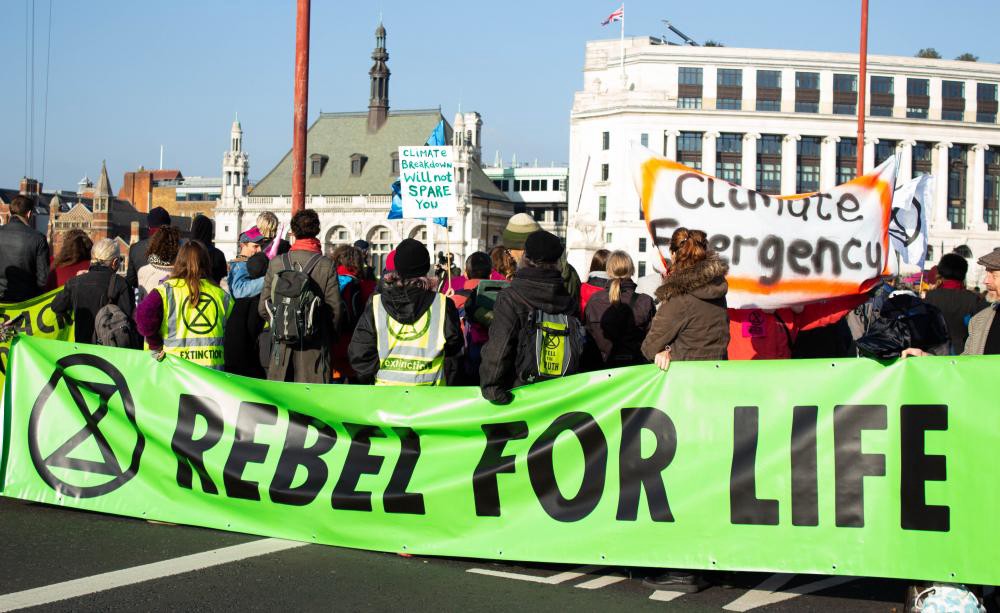Anonymous Writer
We have just 12 years left to do anything about climate breakdown. If we don’t change we will have to sit back and watch it happen. We as SOAS students, will all still be so young. What will 2031 look like? The title of this article was the name of Dr Rupert Read’s lecture he delivered last December. He said that there are three paths that our future can take:
- Civilisation completely changes and most species (including humans) survive
- ‘Natural’ disasters and resource wars will kill most humans, but there will be a small percentage of the population that would survive and begin a new successor civilisation.
- The total collapse of humans and most other species.
Dr Read claims that our most plausible future is scenario two because unless an upheaval of this socio-economic model happens very soon, it will be too late to change it before climate breakdown.
So what will this world look like? Most species will go extinct. Even now, 200 species are being forced into extinction every single day. There are no words to describe just how awful that is. Then there is the human cost of climate change. Millions, if not billions of people will be murdered, and in fact hundreds are already being killed every day from starvation, floods and heat-strokes. Climate change may not seem as bloody as a machine-gun, but if we don’t stop it, it will be the biggest genocide in human history. The 100 companies that have emitted 71 percent of emissions and the governments that still refuse to change need to be called murderers, because that is what they are.
Most victims will be from the Global South. The predicted melting of the Himalayan glacier endangers two billion people in south-east Asia — already, 27 percent of all humans have been locked into an uncertain future. Much of Africa and the Middle East will become uninhabitable. Millions of people will be sacrificed for the continuation of greed.
Although climate breakdown will affect people on different scales, we should all think of how it will affect us personally, because it will affect us all. Parts of the UK including some of London will be underwater and scientists predict that the last harvest in the UK will be in 2050 due to the eroded fertility of the soil. What will happen then? The UK will not be able to import food because other countries would naturally keep all of their food to themselves. And this is assuming nation-states are still functioning. Also, consider how badly Europe has reacted to the migrant crisis — imagine what will happen when whole countries, and perhaps even whole continents have to flee for their lives. In short, none of us will be safe. Personally, my partner and I have decided that we cannot have children with a future as grave as this. If you feel the same way, join the support group #BirthStrike today.
I have deeply involved myself in Extinction Rebellion, which is a grassroots organisation that is revolting against extinction through nonviolent direct action. We demand that each country goes carbon zero by 2025 and form a citizens’ assembly to oversee changes to enable a democratic transformation of society. Although results are important, the act of participating in protest is cathartic independent of the results — there is nothing worse than the thought of people who have not yet been born turning around and asking what we did when we knew.
Some might say that social justice is more important than climate change.
To this I say: tackling climate breakdown is tackling social justice, for there will be no social justice on a dead planet.
The most
To conclude, it is literally now or never. We should all take a step back and consider whether what we are doing helps prevent the collapse of civilisation. If it doesn’t, we are drinking champagne on the tracks as a freight-train is about to smash into us. We should frame everything we do within the context of climate catastrophe –—if it is not useful, relevant or applicable to the age of climate breakdown, future generations will deem it pointless. For example, I have considered dropping out of university many times, for what is the use of a degree when there will be no jobs on a dead planet? This is not to say that we all have the same capacities — many people worry about where their next meal will come from. However, people who do have the capacity should no longer be passive. We must all unite against the governments and corporations who are most responsible for this mess. If they don’t listen, we will build a brighter and fairer world ourselves, because this one is finished.
